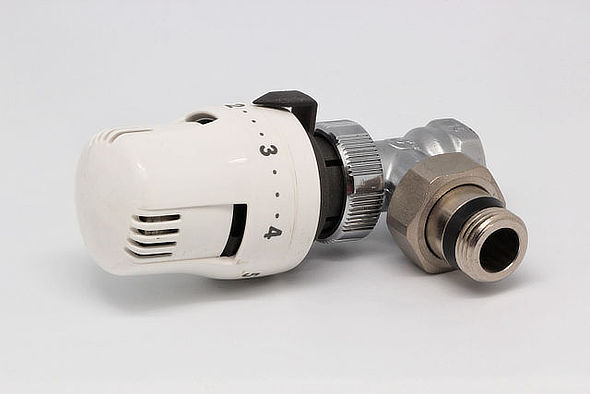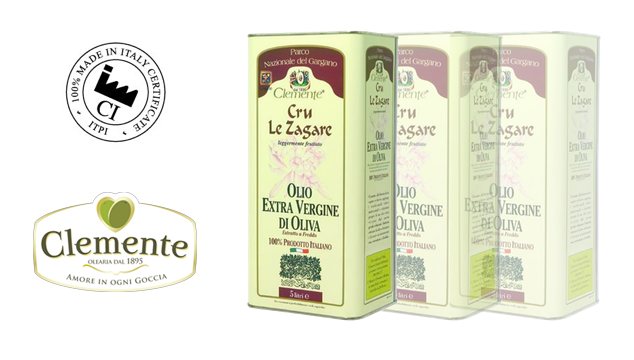When learning a new language, being able to discuss money-related topics is essential, and Italian is no exception. Whether you’re traveling to Italy, conducting business, or simply interested in expanding your language skills, having the vocabulary and phrases to talk about money in Italian is invaluable.
Understanding the importance of discussing money in Italian is the first step. From purchasing goods and services to managing personal finances, being able to communicate effectively in financial matters is crucial for everyday life. It allows you to navigate transactions, negotiate prices, and understand the local currency.
To start your journey in discussing money in Italian, you need to familiarize yourself with basic vocabulary and phrases. This includes learning about currency and numbers, asking about prices, talking about expenses, and expressing affordability. Mastering these fundamental concepts will significantly enhance your ability to handle monetary situations in Italian-speaking environments.
Building upon the basics, advanced Italian vocabulary and phrases will enable you to delve deeper into financial discussions. You’ll learn how to discuss income and earnings, describe financial situations, and negotiate effectively. These skills can be particularly useful if you’re conducting business or engaging in monetary negotiations.
In addition to practical language skills, learning common money-related idioms in Italian can further enhance your understanding and fluency. Idioms provide cultural insights and add depth to your conversations, allowing you to connect with native Italian speakers on a deeper level.
To aid your learning journey, there are several additional resources available that offer comprehensive materials and exercises specifically focused on Italian money vocabulary. Utilizing these resources can further consolidate your understanding and proficiency in discussing money in Italian.
By equipping yourself with the necessary vocabulary, phrases, and idiomatic expressions, you’ll gain the confidence and ability to talk about money in Italian fluently. Whether it’s for personal or professional purposes, these language skills will enable you to navigate financial situations with ease and connect with the Italian-speaking world on a deeper level.
Why is it Important to Talk about Money in Italian?
It is essential to discuss why it is important to talk about money in Italian. For several reasons, if you are planning to live or work in Italy, understanding and discussing financial matters in Italian is crucial for your daily life. It allows you to communicate effectively with locals, whether it’s negotiating prices, discussing budgets, or understanding financial terms and concepts. Additionally, talking about money in Italian can help you navigate the Italian business culture and build stronger relationships with colleagues and clients. Therefore, learning Italian vocabulary and phrases related to money is essential for financial success and integration in Italy.
Basic Italian Vocabulary and Phrases for Talking about Money
Looking to expand your Italian language skills when it comes to discussing money? This section is your ticket! Get ready to dive into the world of basic Italian vocabulary and phrases for talking about money. From mastering currency and numbers to confidently asking about prices, discussing expenses, and expressing affordability, we’ll cover it all. No more feeling lost or uncertain when handling financial topics in Italian – after this, you’ll be equipped to handle any money-related conversation with ease!
Currency and Numbers
Currency and numbers are essential elements when talking about money in Italian. Here is a table highlighting some common Italian currency and their corresponding numbers:
| Currency | Italian Name | Number |
|---|---|---|
| Euro | Euro | 1 |
| Cent | Centesimo | 0.01 |
| Thousand | Mille | 1000 |
| Million | Milione | 1000000 |
Having a basic understanding of currency and numbers in Italian is crucial for various money-related conversations, such as asking about prices, discussing expenses, and expressing affordability. It allows you to navigate financial situations comfortably when communicating with native Italian speakers.
Asking about Prices
Inquiring about prices is a crucial skill to develop when learning a new language, such as Italian. When you want to know the cost of something in Italian, you can utilize expressions like “Quanto costa?” meaning “How much does it cost?” or “Quanto viene?” meaning “How much is it?” These phrases can be useful while shopping or dining out as they help you understand the price of items or services. By practicing these expressions, you will become more confident and successful in various situations. Embrace this opportunity to enhance your language skills and feel more at ease when asking about prices in Italian.
Talking about Expenses
Talking about expenses is a crucial aspect when discussing money in Italian. When visiting or living in Italy, it is vital to learn the basic vocabulary and expressions related to expenses. This involves inquiring about prices, conversing about daily expenses like food and transportation, and expressing affordability. For instance, you can use phrases such as “Quanto costa?” (How much does it cost?) and “Posso permettermelo?” (Can I afford it?). Possessing a solid understanding of these phrases will allow you to handle financial situations comfortably and effectively communicate your needs and preferences.
Expressing Affordability
Expressing affordability in Italian involves using specific vocabulary and phrases to discuss prices and expenses. Here is a list to help you:
- “Quanto costa?” – How much does it cost?
- “È troppo caro” – It’s too expensive
- “Posso permettermelo?” – Can I afford it?
- “È conveniente” – It’s affordable
- “Mi piacerebbe, ma non posso permettermelo” – I would like to, but I can’t afford it

Stop reading, start speaking
Stop translating in your head and start speaking Italian for real with the only audio course that prompt you to speak.
In Italy, the concept of expressing affordability has always played a crucial role. During the economic boom of the 1960s, many Italians experienced increased purchasing power and embraced a culture of consumerism. The global financial crisis of 2008 caused a shift in mindset, leading to a greater emphasis on frugality and mindful spending. Italians learned to prioritize quality over quantity and became more careful about expressing affordability, appreciating the value of their hard-earned money.
Advanced Italian Vocabulary and Phrases for Talking about Money
When it comes to mastering the art of discussing money in Italian, it’s time to level up with advanced vocabulary and phrases. In this section, we’ll dive into the nitty-gritty of financial conversations. From discussing income and earnings to describing various financial situations, we’ll equip you with the linguistics to navigate these complex matters. We’ll also unveil the secrets of effective negotiation and bargaining, helping you secure the best deals. Get ready to amplify your Italian fluency in the realm of money talk!
Discussing Income and Earnings
When discussing income and earnings in Italian, it is essential to learn specific vocabulary and phrases related to finance and employment. Here are some key terms that can assist you in navigating this topic:
- Salario – Salary
- Stipendio – Wage
- Reddito – Income
- Guadagno – Earning
- Contratto di lavoro – Employment contract
- Lavoro a tempo pieno – Full-time job
- Lavoro a tempo parziale – Part-time job
- Stipendio lordo – Gross salary
- Stipendio netto – Net salary
- Pagamento – Payment
- Guadagnare – To earn
- Incremento salariale – Salary increase
- Stipendio mensile – Monthly salary
- Stipendio annuale – Annual salary
Having knowledge of these terms will enable you to engage in meaningful conversations about income and earnings in Italian.
Describing Financial Situations
Describing financial situations in Italian involves using specific vocabulary and phrases related to money management and economic circumstances. Here are a few key points to consider:
- – Assessing income and expenses: Utilize words like “reddito” (income) and “spese” (expenses) to describe financial inflows and outflows.
- – Discussing savings and investments: Words such as “risparmi” (savings) and “investimenti” (investments) are useful in expressing financial stability and future planning.
- – Describing debt and loans: Terms like “debito” (debt) and “prestiti” (loans) help communicate financial obligations and borrowing activities.
- – Explaining financial difficulties: Use phrases like “difficoltà finanziarie” (financial difficulties) when discussing financial challenges or hardships.
- – Discussing financial goals: Employ words such as “obiettivi finanziari” (financial goals) to describe aspirations and targets for financial success.
Negotiating and Bargaining
Negotiating and Bargaining in Italian requires understanding key phrases and cultural norms.
Start by greeting the seller politely and establishing rapport.
Use phrases like “Posso avere uno sconto?” (Can I have a discount?) or “Qual è il tuo miglior prezzo?” (What is your best price?) to facilitate your negotiating and bargaining process.
Show interest in the item, but don’t be afraid to walk away if the price doesn’t align with your budget.
Be prepared to negotiate back and forth, offering counter offers and suggesting compromises, as it is a common practice in Italy.
Remember that bargaining is a common practice in Italy, but maintain a respectful and friendly demeanor throughout the process.
Common Money-Related Idioms in Italian
When learning Italian, it’s important to understand common money-related idioms to effectively communicate about finances. Here are some examples:
- “Avere le mani bucate“ – to have holes in one’s hands, meaning to be spendthrift.
- “Lavorare sodo per i soldi“ – to work hard for money.
- “Essere al verde“ – to be broke or have no money.
- “Buttare soldi dalla finestra“ – to throw money out the window, meaning to waste money.
- “Fare un sacco di soldi“ – to make a lot of money.
Knowing these common money-related idioms in Italian can help you express money-related concepts in a more natural and idiomatic way when speaking Italian.
Additional Resources for Learning Italian Money Vocabulary
When learning Italian money vocabulary, it’s beneficial to have additional resources to practice and expand your knowledge. Here are some suggestions:
- Online courses: Websites like Duolingo and Babbel offer Italian language courses that include lessons related to money.
- Language exchange programs: Find language partners online or in your local community who can engage in conversations about money with you.
- Books and textbooks: Invest in Italian language learning books or textbooks that specifically focus on vocabulary and phrases related to money.
- Mobile apps: Use language learning apps like Memrise or Rosetta Stone to access interactive lessons and quizzes on terms related to money.
By utilizing these additional resources, you can enhance your understanding and fluency in Italian money vocabulary.


.jpg)



